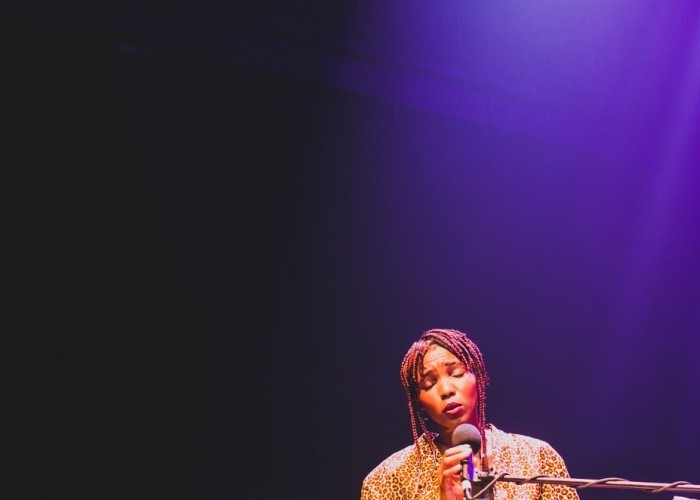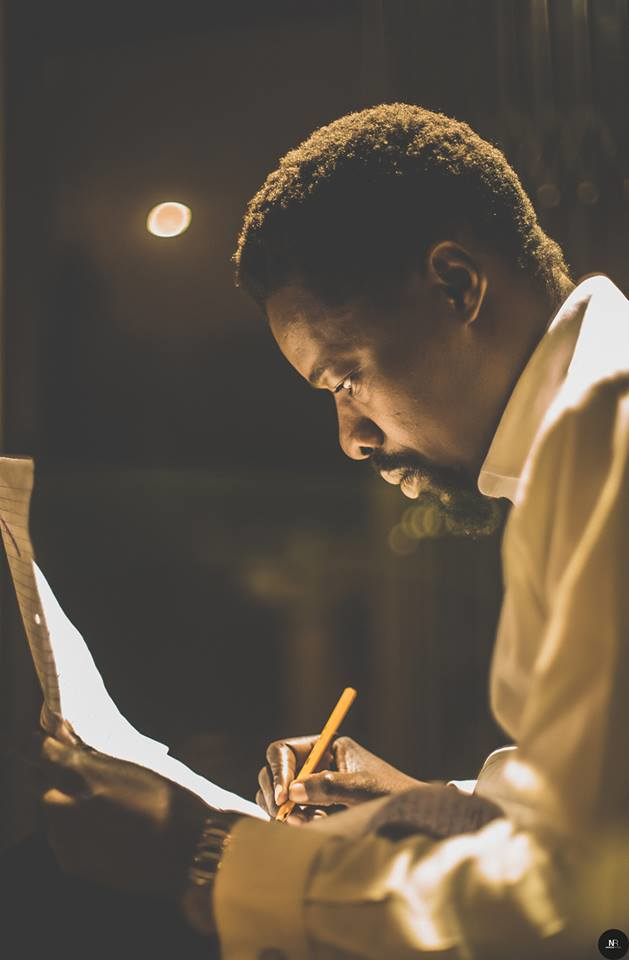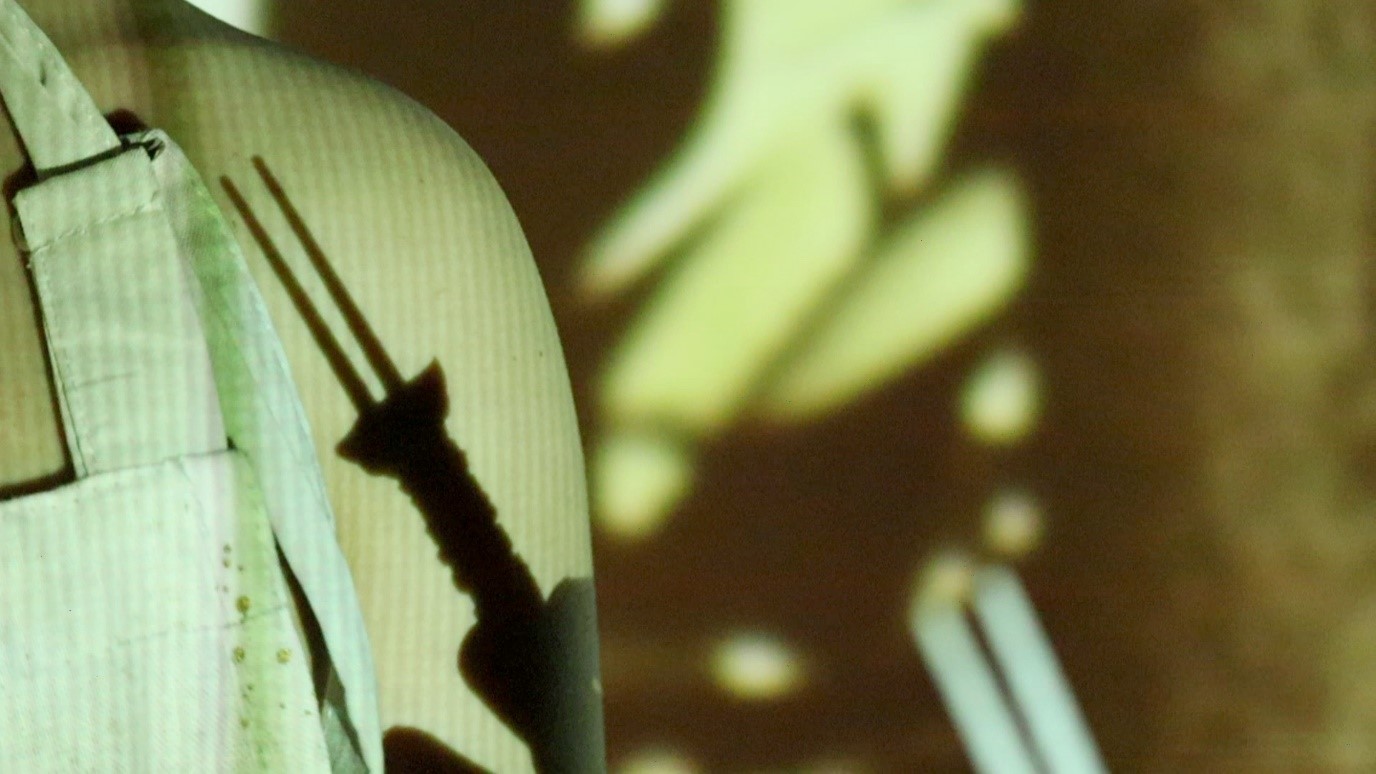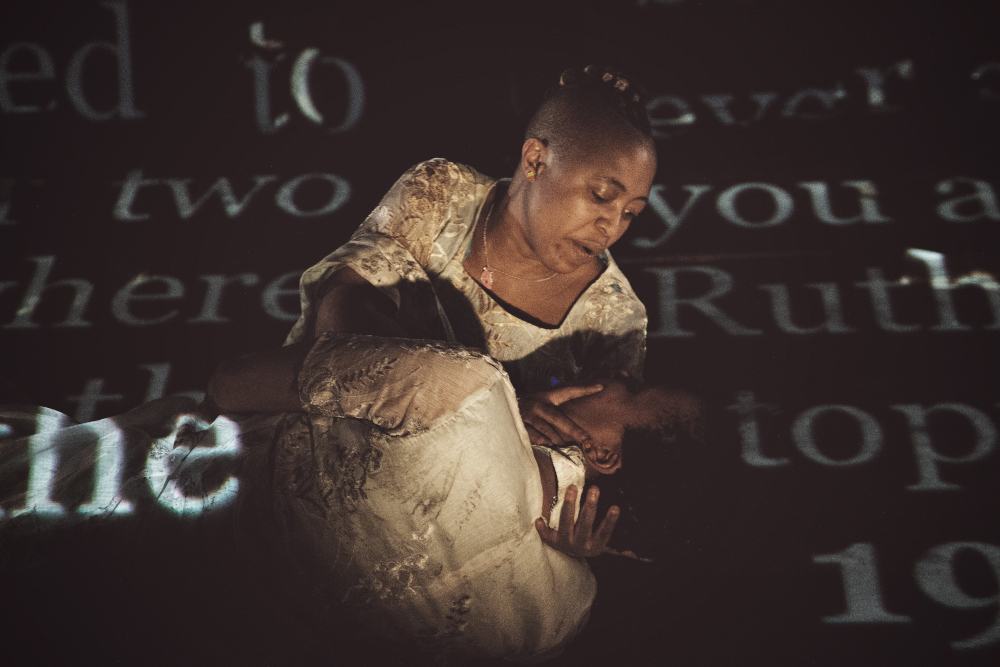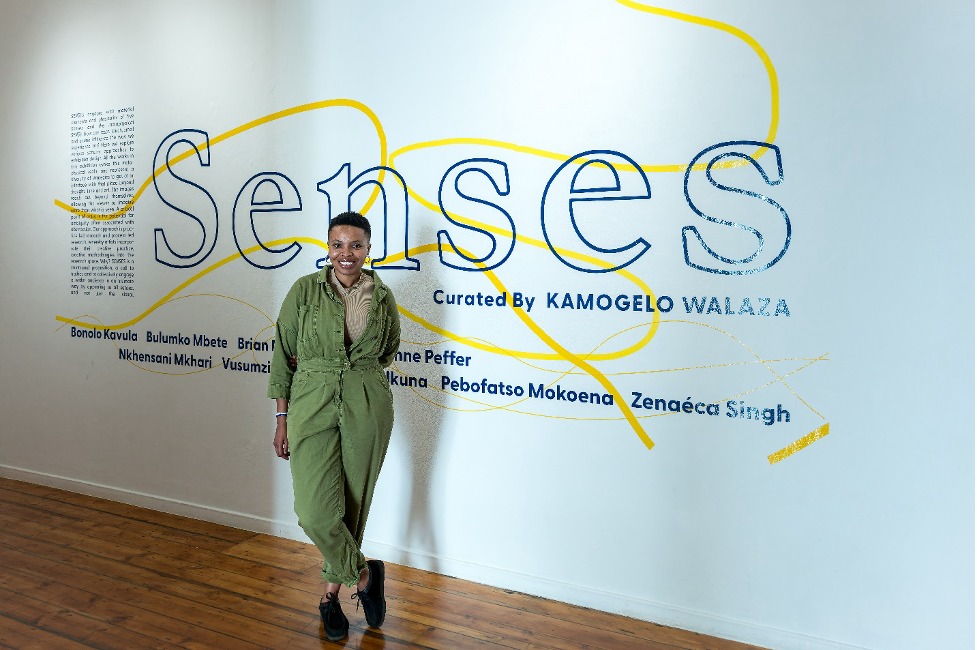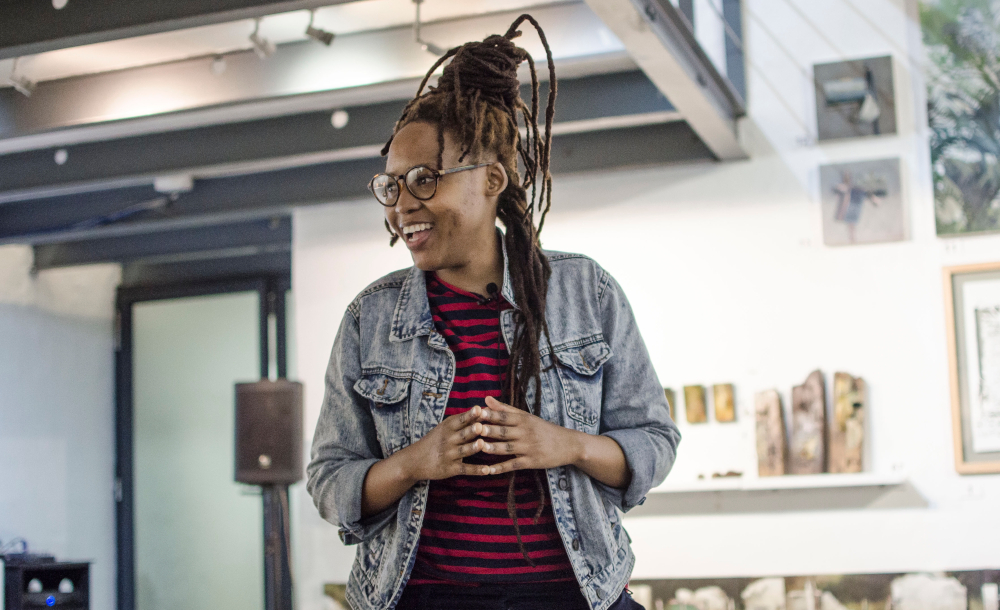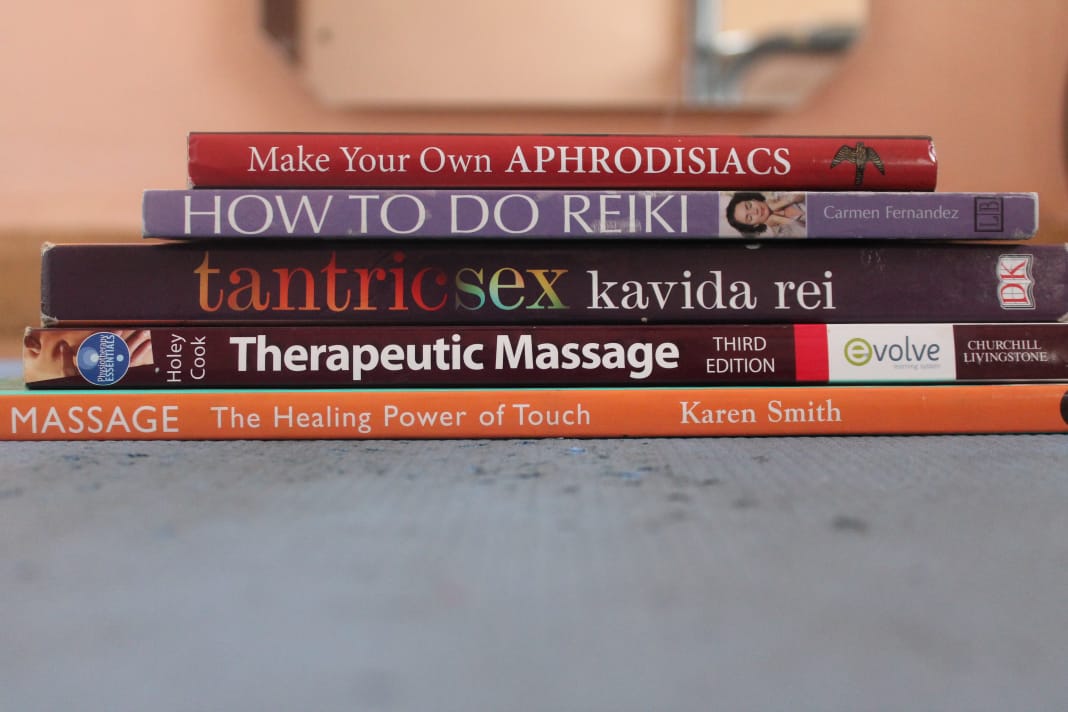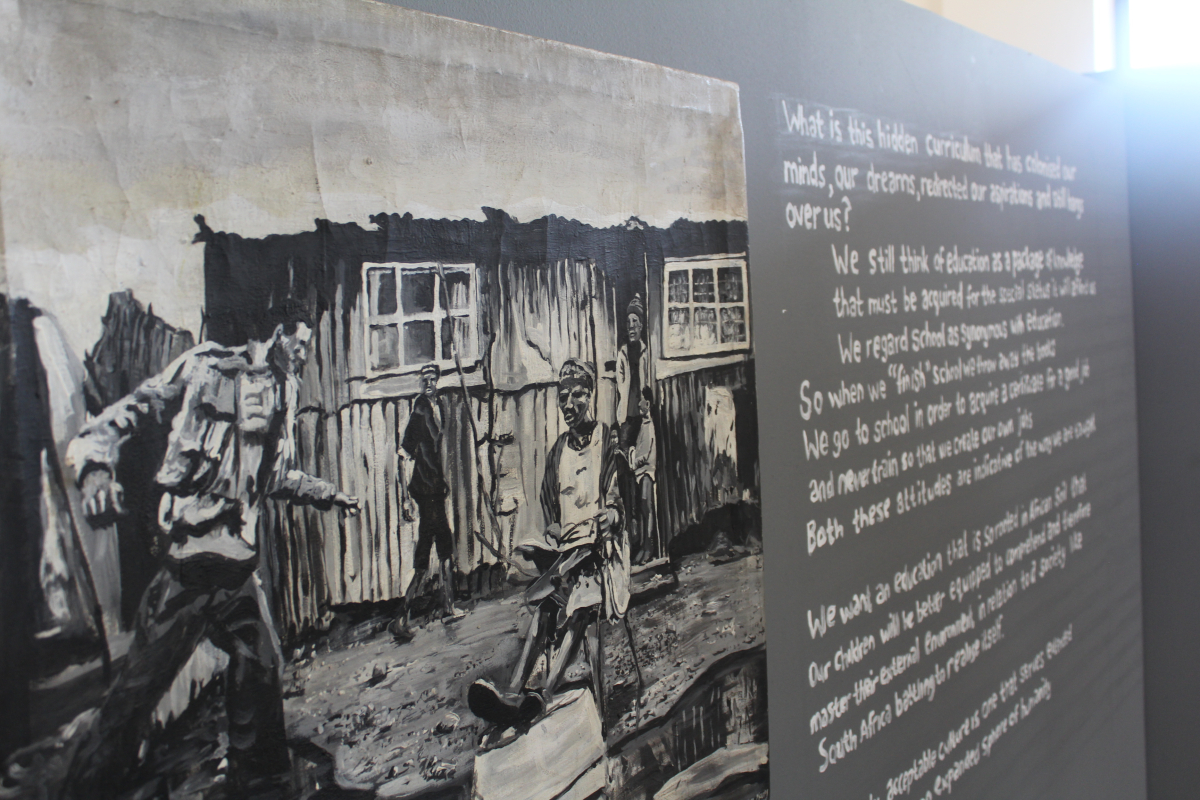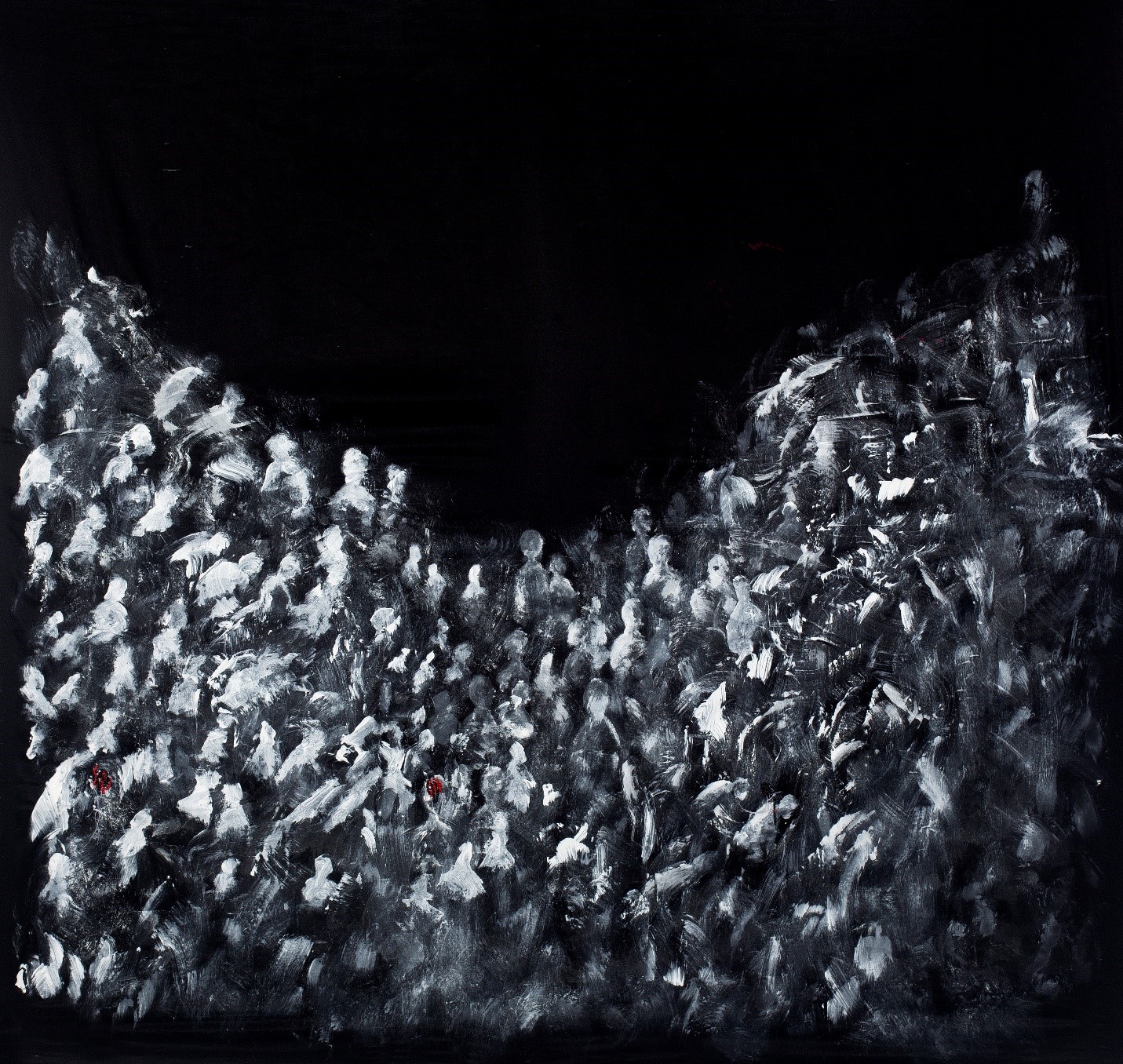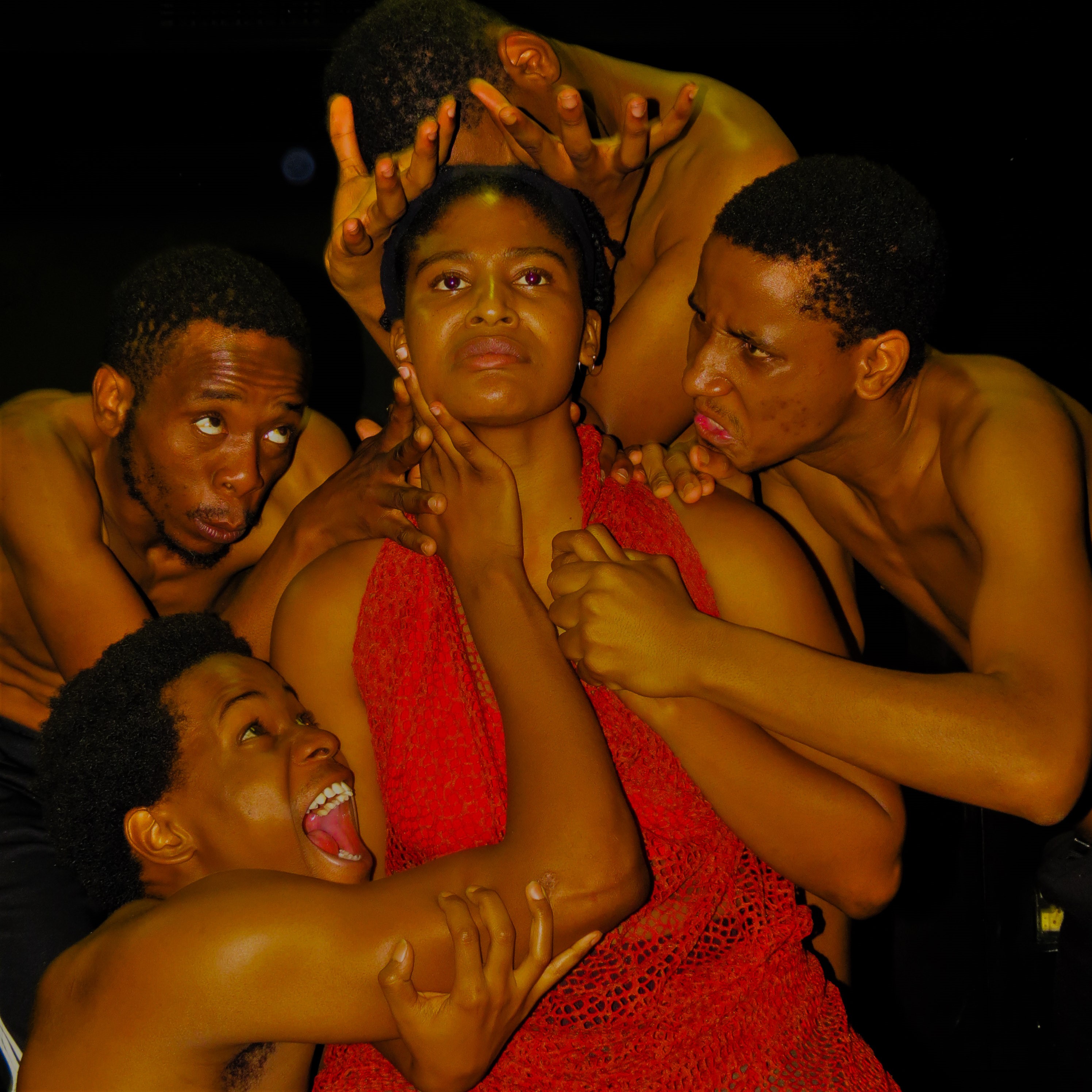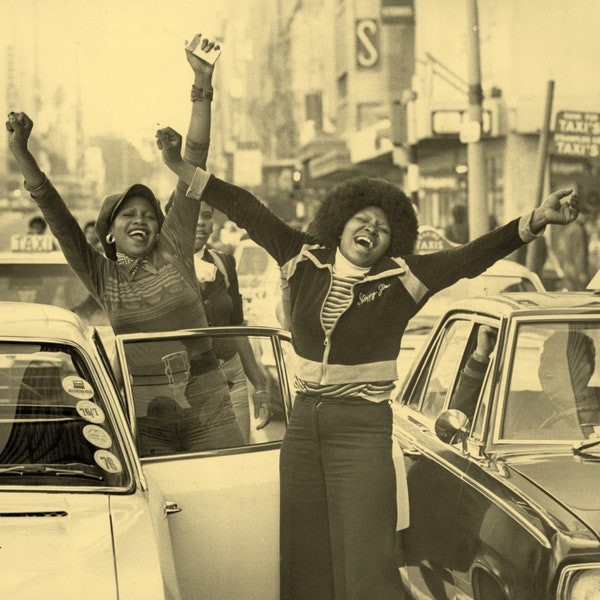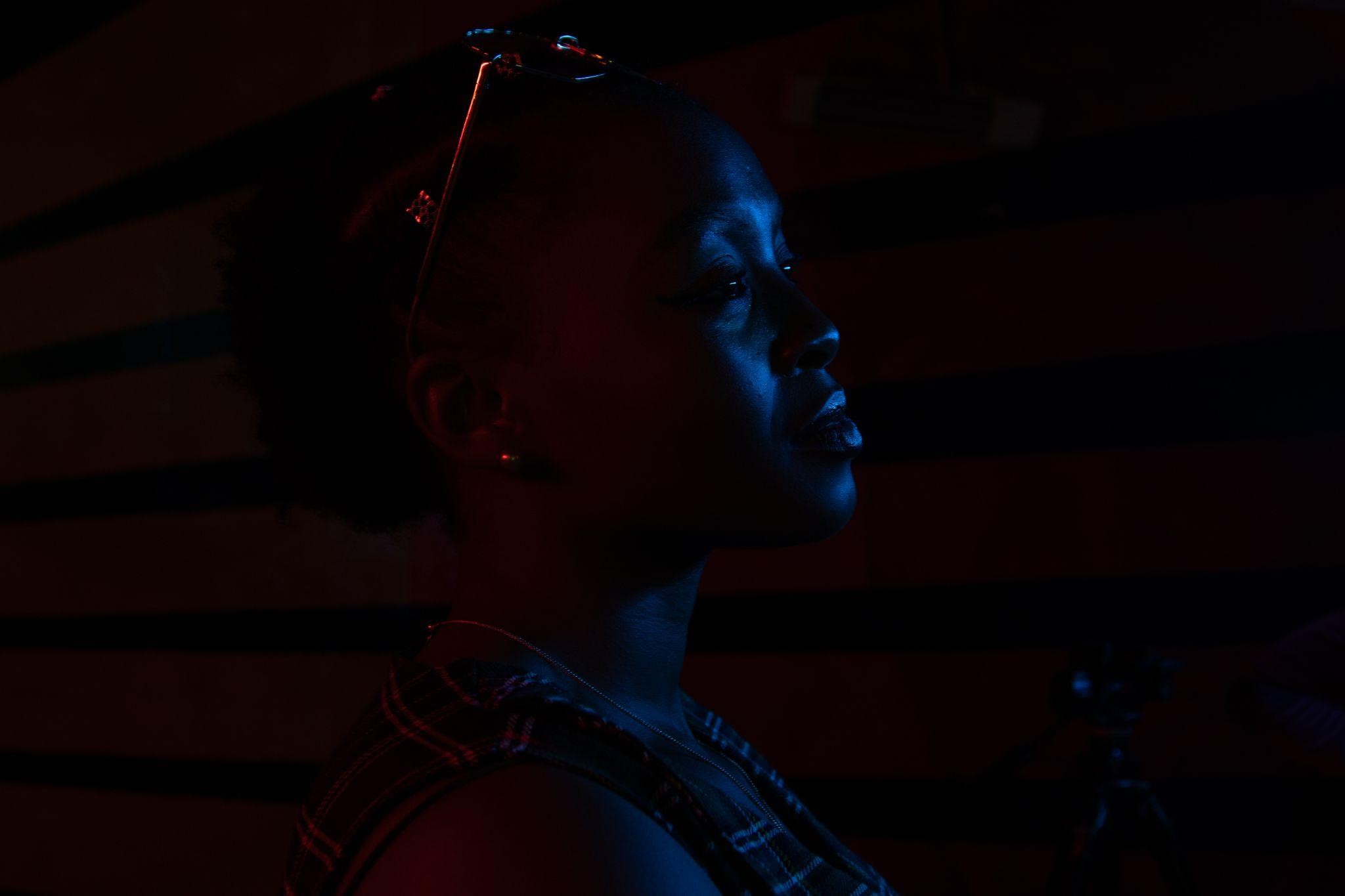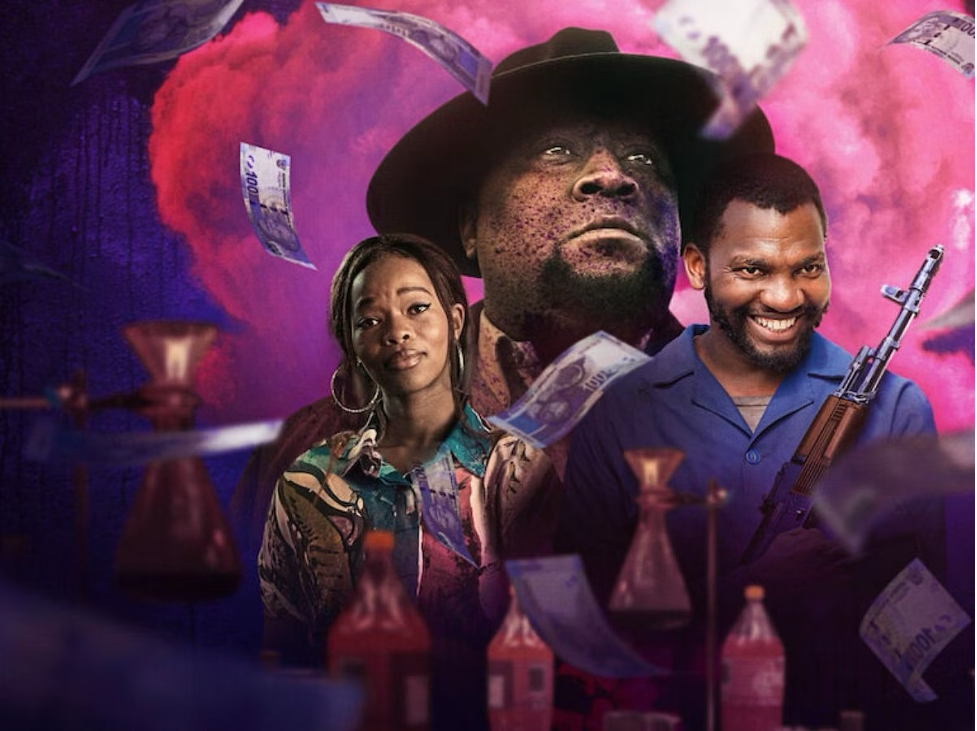Umthandazo
‘I feel it in my heart’, she says. ‘I feel it in my heart center definitely. There’s a lightness about it. There’s a very light, floaty-ness about it.’ With her eyes gently closed as she remembers the feeling of her last live performance in December 2020, Thandi Ntuli draws me into a moment I hadn’t actually experienced. A moment when she and her band played and didn’t want to stop. When they may not have stopped, if they didn’t have to. She giggles gently. ‘Presence’, she repeats throughout our interview. And for the first time, I experience an interview as an inter-view: an instance of seeing something between people. Together, we view her memories and thoughts about the present period of pandemic introspection. At the end of the elevating and grounding conversation, the artist who describes herself as a sound of fluidity and chaos and who giggles like raindrops slipping of off leaves, utters a prayer.
‘I pray that everybody has the courage to heal. Definitely. Men and women. Everybody’, Ntuli prays. It is a bare wish for all of us to be able to withstand the presence it requires to stay in the moment of our conflicts and go where we have not been before. A place she calls “there”.
‘Sometimes I experience music so tangibly. I can’t even explain… Like, I feel it everywhere. And when I experience music in that way, it’s completely transformational for me. So, I’m hoping to be able to assist people in the audience to go there’, she says. “There”, where music can be felt everywhere, like a spiritual experience of feeling a deep sense of connection to everyone everywhere.A New Way
This place called “there” that allows us to feel music everywhere, is a space that Ntuli is intentionally cultivating for An Evening with Thandi Ntuli at the KULTURE Blues Festival, on 14 May at the State Theatre. She is playfully earnest when she talks about how her band members have been ‘able to go there with me’, whenever she has sat at her piano to play a well-rehearsed show but then begins the set with a different song. ‘They are also very present musicians… I’m looking at ways to be more present, but I’m also looking at ways to help the audience be more present’. Currently in yoga-teacher training, she speaks of wanting to ‘hold space for people as well as be held space for’ and again, I feel a shift in how I’ve often heard this phrase “holding space”. When Ntuli speaks about space, it has the tangible texture of how she talks about music. It feels like a very real place, held by real bodies.
‘It’s that place, I guess, where black people have been allowed to be themselves and allowed to tell the truth’, she says as she dives into her definition of the blues. She’s been thinking about what the blues are, as she prepares for the KULTURE Blues Festival. She’s been thinking about who she is and what she wants to say, since the start of the pandemic. Listening to other musicians and stripping down her relationship to the piano to remind herself of her love of music before her many years of training, she finds the blues as the strongest connection, she says. ‘Oh!’ she exclaims, when I ask her about the blues. ‘Oh, I love the blues!’ she says with a sound I can only call a tiny miracle. It is so full of adoration that I know the blues will never be the same again after our inter-view of them. ‘I want to say, “the blues” outside of how we view the blues as an American artform… I also find “blues” in our music a lot!’
For Ntuli, the pandemic has also resurfaced the allowance to be broken and hurting; to fall apart and find new ways to handle the breakage. She believes that ‘however we handle the falling apart is going to dictate where we go, both as individuals and as a society.’ She affirms, just as she writes some of her music using affirmations-turned-into-poetry the importance of being able to process healing without being told to move on. Her music holds a space for being black in South Africa while opening up light portals to feelings of historical grief.
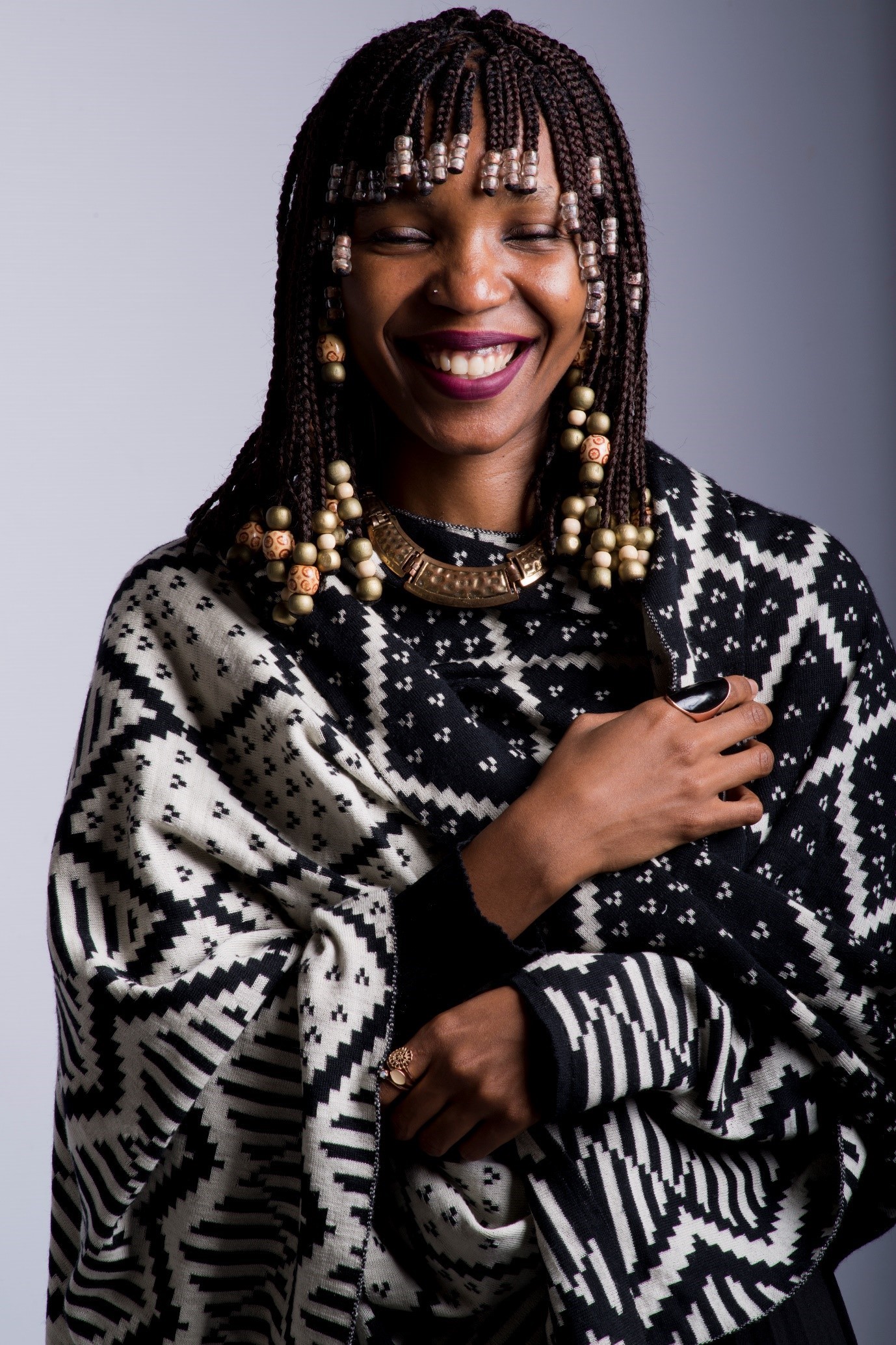
Victor Dlamini
Cosmic Light
‘It’s just an attitude. It’s a feeling! It’s a feeling.’ The place called the blues. For her, she says, it is ‘probably the most consistent place where I feel like, “Oh, I love this so much.” Where people sing things that even if you haven’t experienced them, you feel like you have. Which could explain why even as a young, like 10-year-old, there’s this old auntie’s song that makes me cry. But it’s that feeling. That is what I would say is the blues-thread in all the music that I really love… There’s just no frills. There’s no frills in the blues. It’s just people telling the truth; whether the truth is ugly or not.’
One of Ntuli’s current truths is anger. She rain-drops a dewy morning sigh. She half-giggles at the discomfort of having dreams where she wakes in a rage, without knowing the source, or where these emotions have been located all these years. She says she had a somber Freedom Day this past month. Sitting with thoughts of freedom and what it means in the year 2021, she reflects on the weight of blackness in her own music and our place in the global community. Staying with questions instead of finite answers, she circles back to the questions: “Who am I really? What do I really want to say?” Her own sense is of being ‘this girl who is literally very solid but very fluid at the same time’. She is holding contradictions in a new light now and understanding her own writing in her previous album Exiled with deeper insight.
It is this space that she hopes to hold for An Evening with Thandi Ntuli- her current insight and how it transforms the music when it is shared in the presence of an audience.
H. TA few days after the seven-year anniversary of her debut album The Offering, this evening with Thandi Ntuli holds special significance as a new cycle for her. The Offering was recorded amidst planning her grandmother’s funeral. For her grandmother, she wrote and recorded H.T. A piece that calls out into the ether and ends with a feeling akin to an ancestor’s smile as they watch you step into your divinity.
Ntuli only names H.T and Dikeledi as the definite set-pieces for the evening.
Dikeledi
In Dikeledi, the questions of “Who am I really? What do I really want to say?” seem to find answers in infinite African languages that create exciting ways of playing the trained instruments. The call of deep ubuntu becomes one of continually striving for the ideal of being an integrated muntu, motho unafraid of acknowledging dikeledi tsa Badimo. In this song, “there” is a space held by dikarabo le dithapelo tsa rona.
Playing Dikeledi at the KULTURE Blues Festival will be an experiment with a fresh song. But, in its own manner of blues, it issues a prayer to ‘make us compassionate for another person’s story, whether we agree with it or not, on principle’. This becomes the heart of Ntuli’s blues for An Evening with Thandi Ntuli: a prayer to listen, with compassion.
14 May 2021 An Evening with THANDI NTULI | Time - 19:00 | Entry: R150
15 May 2021
Makhafula Vilakazi |Time – 15:00 | Entry: R100
Iphupho L’ka Biko |Time – 17:30 | Entry: R100
Webtickets: Webtickets: KULTURE Blues Festival

